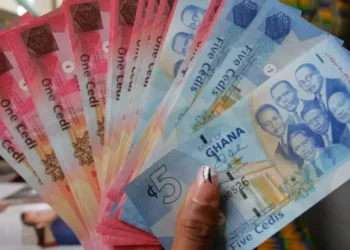The spectre of Ghana’s 2024 election-induced expenditures looms large over Ghana’s fiscal economy, posing significant challenges and potential setbacks, according to the latest insights gleaned from the 2024 Quarterly Report by Databank Research.
As the government signals a drive towards capital expenditure in the current year, concerns arise regarding the fiscal implications and the possibility of budget overruns as always the case in electioneering years in the West African country.
The report highlights the peril of potential fiscal overruns, cautioning that such occurrences could fuel inflationary pressures and impede the ongoing disinflation process. Notably, the budgeted increase in capital expenditure raises apprehensions about the government’s ability to adhere to planned expenditure levels, especially amidst the fervor of an election year.
“Possible election-induced fiscal overruns may induce inflationary pressures and slow the disinflation process. The budgeted increase in capital expenditure from GH¢20.44 billion in 2023 to GH¢28.70 billion in 2024 will likely stimulate price pressures as the government could overrun the programmed amount during this election year,” the report noted.
Moreover, the report added that the geopolitical uncertainties, notably the escalating tensions in regions such as Ukraine and the Middle East, exacerbate the situation. The ongoing Russia-Ukraine conflict casts a shadow of unpredictability, while simmering tensions in the Middle East add further complexity. These geopolitical dynamics, coupled with fluctuations in energy prices, carry the potential to disrupt domestic prices and utility tariffs, amplifying inflationary pressures.
Of particular concern are the ripple effects of higher energy prices, which could reverberate throughout the economy. The report highlights the implications of production decisions from OPEC+ nations, cautioning that any upward trajectory in energy prices could translate into elevated domestic prices, thereby exacerbating inflationary concerns.
The Introduction of New Tax Measures
Additionally, the introduction of new tax measures adds another layer of complexity to the inflationary landscape. The imposition of a 15% Value Added Tax (VAT) on electricity for residential consumers above lifeline thresholds, alongside the proposed implementation of an emission tax, presents challenges for consumers and businesses alike.
These tax adjustments have the potential to stoke inflationary pressures, particularly within the utilities and transportation sectors, further straining household budgets and business operations.
The report underscored the interconnectedness of global events and their ramifications for Ghana’s trade dynamics. Heightened geopolitical tensions, particularly those in conflict-prone regions, threaten to disrupt commodity markets and elevate oil prices.
Such developments could translate into a higher import bill for Ghana, exacerbating trade imbalances and placing additional strains on the country’s external sector.
In light of these multifaceted challenges, policymakers face a daunting task in steering Ghana’s fiscal status. Striking a balance between promoting economic growth and managing inflationary pressures amidst heightened uncertainties requires astute policy interventions and prudent fiscal management. Moreover, fostering transparency and accountability in government expenditure becomes imperative to mitigate the risks associated with election-induced expenditures and geopolitical uncertainties.
Looking ahead, proactive measures to bolster fiscal resilience and enhance economic diversification are paramount. By fortifying institutions, promoting sustainable development, and fostering a conducive business environment, Ghana can navigate the current challenges and chart a course towards long-term fiscal stability and inclusive growth.
Meanwhile, election-induced expenditures cast a shadow over Ghana’s fiscal economy, posing formidable challenges amidst geopolitical uncertainties and inflationary pressures. By adopting prudent fiscal policies and proactive measures, Ghana can navigate these challenges and steer towards a path of sustainable development and economic resilience.
READ ALSO: GSE Market Indices Hold Steady Amidst Stable Performance


















